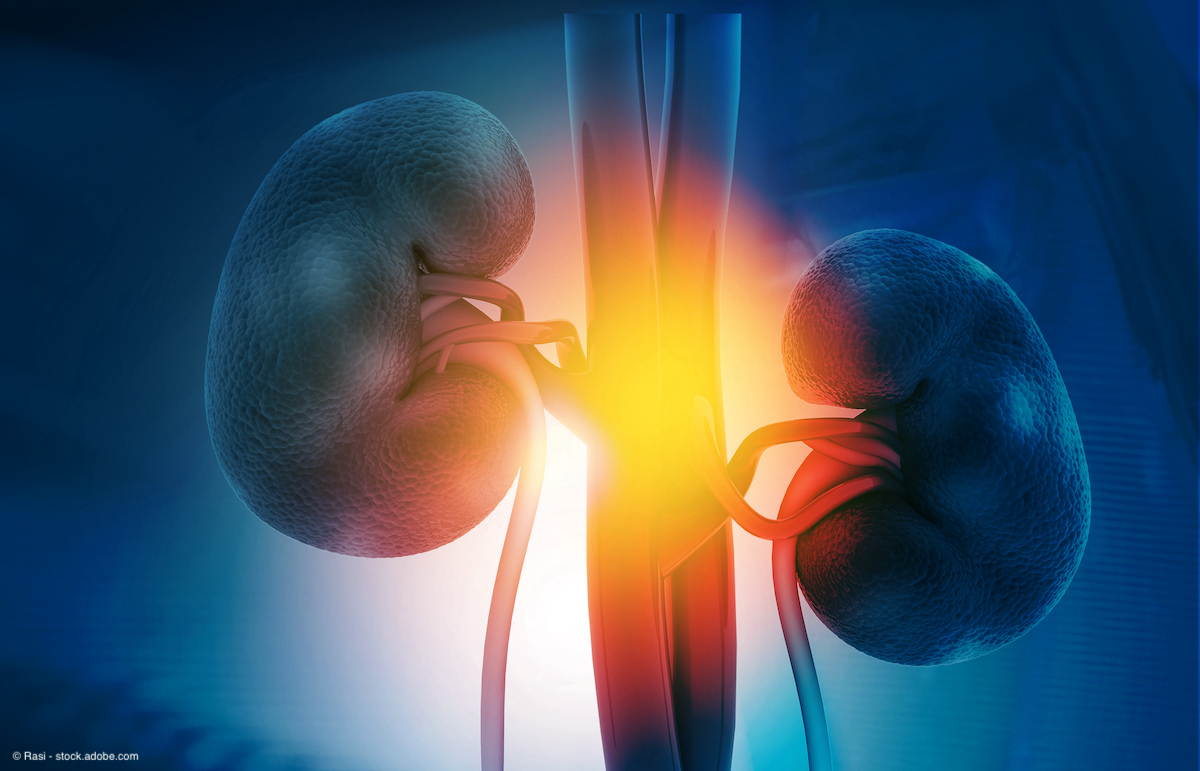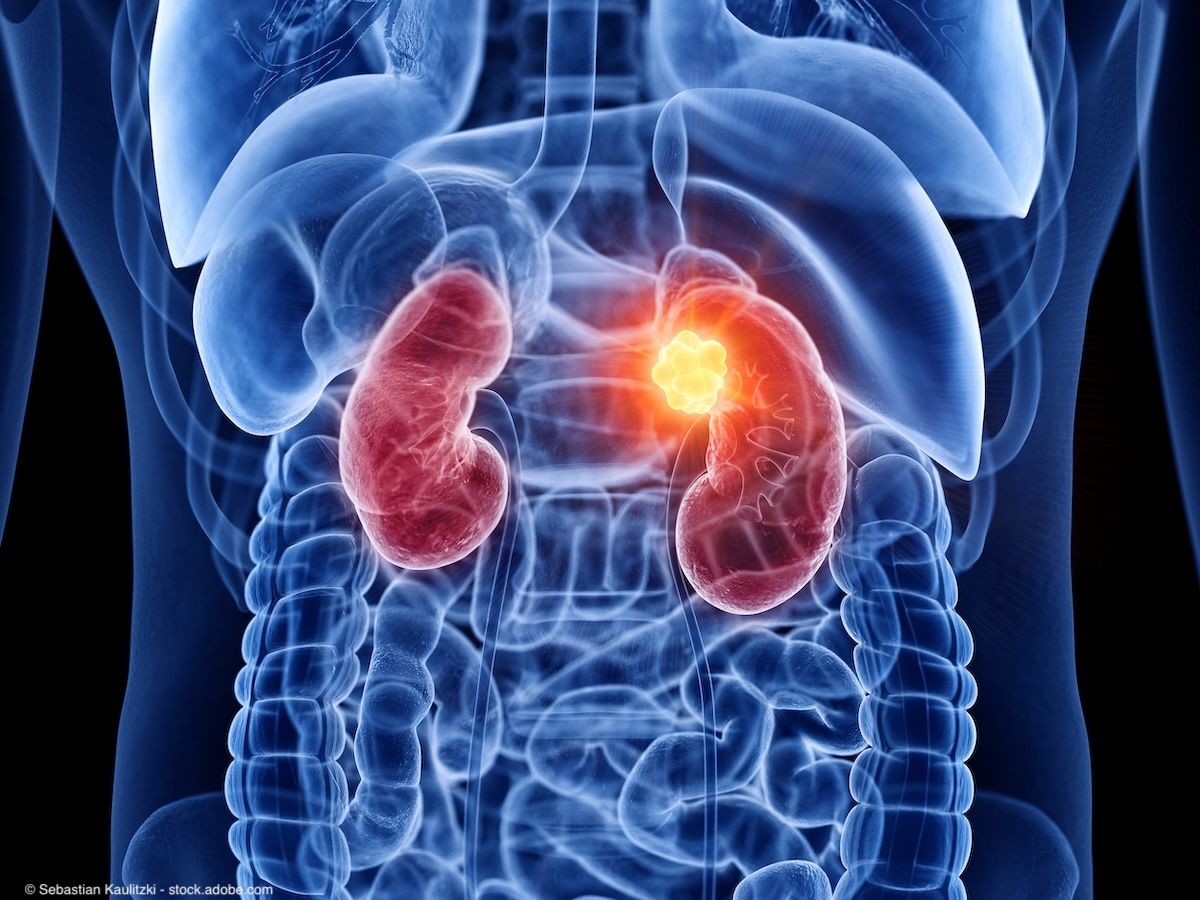News
Article
Dosing commences in phase 1/2 trial of AB-2100 in ccRCC
Author(s):
The dose escalation/dose expansion study is evaluating the safety and efficacy of AB-2100 in patients with ccRCC who either came back or did not improve following prior treatment with a checkpoint inhibitor and a VEGF inhibitor.
The first patient has been dosed in a phase 1/2 clinical trial (NCT06245915) of the T-cell therapy AB-2100 in patients with advanced or metastatic clear cell renal cell carcinoma (ccRCC), announced Arsenal Biosciences, the developer of the therapy, in a news release.1
Primary completion of the study is expected in February 2025.

“Kidney cancer is an immunologically responsive malignancy with several FDA approved immunotherapies on the market. But despite much progress in the field, there remains a tremendous unmet need in this indication, which we believe our Integrated Circuit T (ICT) cell technology is ideally suited to address,” said Arsenal Biosciences’ Chief Medical Officer Susie Jun, MD, PhD, in the news release.1 “As with our AB-1015 program in ovarian cancer, we hope this study succeeds in identifying a safe and therapeutic dose to enable further study of this potential therapy in larger patient cohorts.”
Overall, the dose escalation/dose expansion study is evaluating the safety and efficacy of AB-2100 in patients with ccRCC who either came back or did not improve following prior treatment with a checkpoint inhibitor and a VEGF inhibitor. In total, the open-label, multi-center study plans to enroll up to 60 patients in phase 1 and up to 130 patients total across clinical trial sites in the US.
Patients enrolled in the study will receive AB-2100 via a single intravenous infusion following the completion of 3 rounds of conditioning chemotherapy delivered over 3 consecutive days.
To be included in the study, patients must have advanced or metastatic ccRCC, adequate organ function, an ECOG performance score of 0 or 1, and measurable disease at the time of enrollment. Further, female patients of childbearing potential and male patients must agree to acceptable methods of contraception from enrollment to at least 12 months after infusion.2
Patients will be excluded from the study if they have myocardial infarction or unstable angina within 6 months prior to screening, pleural effusions that require drainage within 28 days of screening, or an active autoimmune disease. Additionally, patients must have not had any prior systemic RCC therapy within 2 weeks of cell collection, had systemic anti-cancer therapy within 2 weeks or any investigational cellular therapy within 8 weeks prior to the start of conditioning chemotherapy, or had any prior treatment with anti-CA9 therapies.
The primary outcome measure for phase 1 of the study is the incidence of adverse events, with the goal of determining a maximum tolerated dose for the next phase of study. The primary outcome measure for phase 2 of the study is the objective response rate, defined as the proportion of patients who achieve either a partial or complete response per RECIST v1.1.
Primary completion of the study is expected in February 2025.
AB-2100 is an ICT cell therapy that utilizes the company’s CITE (CRISPR Integration of Transgenes by Electroporation) technology to engineer T-cells to selectively target a patient’s tumor. The therapeutic technique involves the CRISPR-mediated insertion of a large synthetic double-stranded DNA cassette into a novel safe harbor site in chromosome 11.
“Our logic gate approach was designed to selectively target tumors and spare normal tissues by requiring the presence of 2 antigens in close proximity. Based upon our preclinical data we believe this synthetic biology-based logic gate approach will enable targeting of antigens like CA9, where conventional CAR T-cell strategies have been limited by on-target toxicity in healthy tissues,” added Jun in the news release.1
In addition to the phase 1/2 trial of AB-2100 in ccRCC, Arsenal Biosciences also has an ongoing phase 1 study (NCT05617755) of their other T-cell therapeutic candidate, AB-1015, in patients with ovarian cancer.
References
1. Arsenal Biosciences announces first patient dosed in phase 1/2 clinical trial of AB-2100 in development as a treatment for clear-cell renal cell carcinoma. News release. April 30, 2024. Accessed May 15, 2024. https://arsenalbio.com/2024/04/30/arsenal-biosciences-announces-first-patient-dosed-in-phase-1-2-clinical-trial-of-ab-2100-in-development-as-a-treatment-for-clear-cell-renal-cell-carcinoma/
2. AB-2100, an integrated circuit T (ICT) cell therapy in patients with recurrent clear-cell renal cell carcinoma (ccRCC). ClinicalTrials.gov. Last updated May 10, 2024. Accessed May 15, 2024. https://clinicaltrials.gov/study/NCT06245915
Newsletter
Stay current with the latest urology news and practice-changing insights — sign up now for the essential updates every urologist needs.
















